VPN and proxy server are two terms that are often used interchangeably. That’s because both of them allow us to hide our IP address while surfing the web.
However, both Proxy and VPN function differently when it comes to keeping us securely online.
In this article, we’ll make a detailed Proxy Vs. VPN comparison and explain which you should use if you want to protect your privacy online.
You may be concerned about the data you’re sharing while browsing the internet, fearing hackers, the government, and data analytics companies that sell data, it’s important to be able to differentiate between Proxy and VPN.
Many people are starting to realize that keeping themselves anonymous on the internet is priceless.
In a survey conducted by Cisco, more than 84% of consumers reported that they care about their data and personal information, which just shows the rise in the use of VPNs and Proxy servers.
Without further ado, let’s give a proper definition of proxy server and VPN before we dive into comparing them.
What is a Proxy Server?
Proxy servers are practically computers that have an IP address of their own that the consumers’ computer knows. That way, while connected to the internet, your computer uses a proxy server as a relay that connects them to the website they want to visit.
The key feature of a proxy server is that it will hide your IP address so that when you visit a certain website, it’ll show the IP address of the proxy server.
It’s worth noting that the proxy server works on the application level, which means only one application or website can be connected to the proxy server, not your entire online presence.
That being said, if you are geo-restricted from visiting a certain website, a proxy server with an IP address that is not restricted can be used to access it. Still, your data is not encrypted so you’re essentially using a proxy server only as a wingman.
Along with the IP address hiding option, proxy servers may offer a feature known as IP rotation.
IP rotation refers to a process where IP addresses are assigned to a device at certain or random intervals. This feature lowers the likelihood of being blocked by a certain website but it’s also used in data scraping to confirm that the data you’re trying to download is authentic.
Types of Proxy Servers
There are different types of proxy servers, but the following types are most commonly used:
- HTTP – The HTTP proxy server is most commonly used with geo-restricted websites. Internet users that face a lot of internet censorship in their country can enjoy the content of those websites using this type of proxy server.
- SOCKS5 – This type of proxy server is ideal for streaming, file sharing, and messaging platforms. It’s worth mentioning that it’s significantly slower compared to HTTP proxy.
- Transparent – Transparent proxy servers have the opposite functionality compared to those other types of proxy servers. Instead of unlocking geo-restricted internet content and masking the IP address of your computer, this proxy will be used to block it. That way schools, internet cafes, libraries, and other institutions can prohibit their users from visiting certain websites.
What is a VPN?
VPN (Virtual Private Network) works similarly to a proxy server. However, its functionalities are more complex and offer more benefits for users.
As mentioned above, like a proxy, VPN will hide your IP address using one of its servers scattered across different locations.
However, unlike the Proxy that works only on the application level, a VPN has control over the entire operating system, meaning you can use a VPN across different browsers and apps that have access to the internet, simultaneously.
If that doesn’t sound exciting enough, using a VPN also means that your data is encrypted using the most secure hashing algorithms and your privacy is ensured.
Your ISP can no longer track your internet activity, nor share it with the government, hackers, or other entities that’d like to survey your network.
With a VPN, you’re not just hiding your IP address, you’re also securing your online privacy and anonymity. There are many VPN service providers online, but our favorite ones are NordVPN and ExpressVPN.
Comparison
Now that we saw how proxy and VPN work, it’s time to take a look at the Proxy Vs. VPN comparison and see what’s different. The comprehensive table below can help you understand the differences better.
| Proxy Server | VPN | |
| Encryption | No | Yes |
| Speed | Depends | Depends |
| Level of Operation | Application-level | Operating system |
| Price | Usually free | Usually paid |
| Stability | Unstable connection | Stable connection |
| Log-less? | No | Mostly yes |
Encryption
The proxy server will only hide your IP address and replace it with that of the proxy server. That means that your personal information is still accessible on the internet.
With a VPN, that’s not the case. Your ISP only knows that you’re connected to a VPN, and won’t know anything about your activity on the internet.
In contrast, while you’re connected to a proxy server, your ISP can still access your internet activity and you’re still exposed to government surveillance and at risk of being targeted by hackers.
If you don’t want to just hide your IP address when accessing different websites and the information about your network and computer, it’s best to use a VPN.
Speed
Generally speaking, a proxy server should be faster than VPN. That’s because data encryption can slow you down while online.
However, because a lot of proxy servers are free, there’s no guarantee of reliable speed. On the other hand, a lot of VPNs have improved their servers and network speeds, even when multiple devices and apps are connected to them.
Level of Operation
A proxy server functions only on the application level. That means that you can connect to a proxy server only using your browser or one application that has a connection to the internet.
Both won’t work, which is why it’s best to use a VPN because it functions on the operating system level.
That means that multiple applications can access the VPN server. You can use your browser to access some websites anonymously while using a VPN for your Netflix or Spotify app to unlock geo-restricted content.
Price
Proxy servers are mostly free, which is why most consumers use them as their go-to option when they just want to reroute their IP address. Still, some exceptions are paid.
A good VPN is paid, usually through a monthly subscription system that is charged either monthly or annually.
It wouldn’t be good if a VPN was not paid. Keep in mind that there are free VPN options that we don’t encourage using because of suspicious privacy policies and no particular protection for users.
Both free VPNs and proxy servers can keep logs of your IP address, along with HTTP and DNS requests, while keeping your personal details.
Such providers can easily sell your data to analytical companies, advertisers, and even hackers. Such providers should be avoided at all costs so your online presence isn’t compromised.
It’s worth mentioning that there are paid proxy servers. Such providers give additional features to their users such as IP rotation, faster speeds, and bandwidth saving.
A lot of companies rely on proxies for better speeds, accessing geo-blocked websites, and using IP rotation for easier data scraping from the competitor’s website.
Using a reliable proxy provider also means that you can manage multiple accounts without facing penalties.
That means businesses will have an easier time managing their marketing strategy and SEO analysis. It also allows for easier management of social media accounts.
There are special proxies for web scraping that are used to hide the IP address of your scraping machine. Many proxy server providers offer help with setting up such a service with a paid plan.
Proxy servers can also be used to automate data gathering. Companies, as well as individuals, can benefit from the IP rotation feature to scrap data anonymously without risking downloading false or misleading data by getting blocked.
Stability
Using a VPN means much more stability when you’re browsing the internet and accessing different websites. Proxy servers don’t have stable connections.
Because they’re mostly free, the proxy server doesn’t come with a strong and reliable connection, which is why the connection can drop out more frequently than when using a VPN.
The connection on VPN is generally considered stable, but losing the connection happens.
A good and reliable VPN client has a mechanism that blocks the connection to the internet for some time if sudden network fluctuation or loss is detected.
Log-less?
What does the no-logs policy mean? Essentially, it means that the VPN provider won’t keep your information or online presence logs as you use it to browse the internet and access blocked content.
Additionally, it can’t share that information with your ISP, government, hackers, and other entities that would be curious about your information.
That said, any information that gets passed through the network is encrypted and VPN provider nor anyone else can access it including your browser history, login data, payment methods, downloads, streams, and others.
This doesn’t apply to all VPN providers because some will keep a record of some logs. That’s why it’s important to choose a VPN provider that explicitly states it doesn’t keep the logs of your activity.
The same can’t be said about proxy servers, which is why anyone who is educated about different privacy policies tends to avoid proxy servers and opt for subscribing to a VPN service provider instead.
Conclusion – Which One to Use?
As we draw to the conclusion of this article, it should be clear which of these two services you should use and why.
A proxy server is great if you only want to browse the web anonymously in sense of hiding your IP address when surfing through the web. It’s also good if you want to be able to access some geo-restricted content.
It’s worth noting that most websites and apps that restrict their content and services based on user location have mechanisms that prevent them from using Proxy to access it, such as Spotify.
That’s why it’s a good idea to use a VPN instead, because not only does it allow you to protect your anonymity and hide your IP address, by opting to use VPN you are also choosing to protect your privacy and prevent hackers and ISP from tracking your internet activity.
For anyone who wants unlimited access to the internet while keeping your data private, choosing a VPN should be a priority.
We earn commissions using affiliate links.
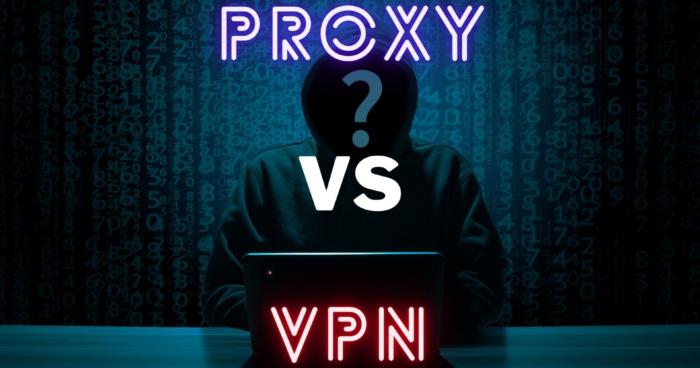
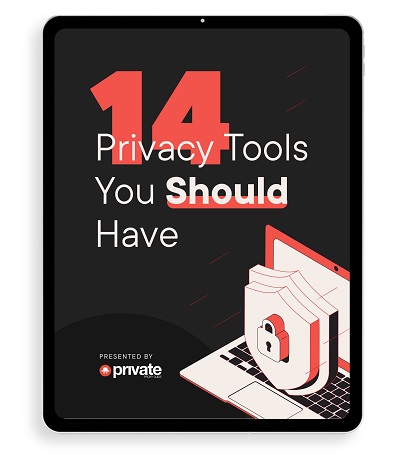
![ZTNA vs VPN ([year]) A Comparison of the Difference ZTNA vs VPN](https://www.privateproxyguide.com/wp-content/uploads/2022/04/ZTNA-vs-VPN-150x150.jpg)
![Your Private Proxy Review: Reliable Proxy Services [year] Your Private Proxy Review](https://www.privateproxyguide.com/wp-content/uploads/2018/11/01-your-private-proxy-homepage-150x150.jpg)
![Nimble Proxy Review: Fast and Reliable Proxy Solutions [year] Nimble Proxy Review](https://www.privateproxyguide.com/wp-content/uploads/2023/03/Nimble-Proxy-Review-150x150.jpg)


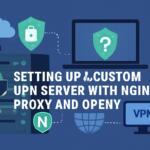
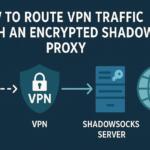


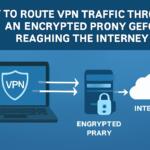



![Squid Proxies Review: Proxy Service for Businesses [year] Squid Proxies review](https://www.privateproxyguide.com/wp-content/uploads/2017/11/squid-proxies-150x150.jpg)